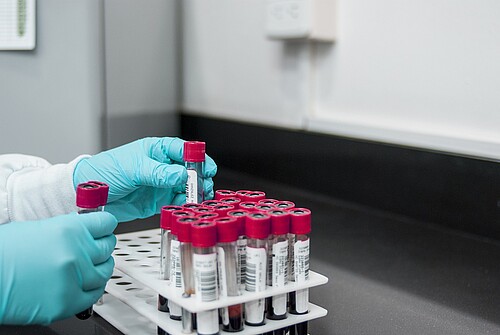Time: 2024-08-07
In a groundbreaking study published in Nature Medicine , researchers have harnessed the power of Artificial intelligence and Machine learning to analyze blood samples and predict the risk of developing various diseases . By studying protein patterns in blood samples from a large cohort of over 45,000 individuals , scientists have been able to identify early warning signs of conditions like Alzheimer 's , heart disease , and type 2 diabetes up to a decade before clinical diagnosis.
Using cutting - edge AI tools , researchers have uncovered distinct protein signatures associated with an increased risk of disease development . These findings have the potential to revolutionize healthcare by allowing for early intervention and preventative measures . The study , which involved collaboration between researchers from the University of Edinburgh , Optima Partners , and Biogen , analyzed data from the UK Biobank - a database containing genetic and health information from half a million participants.

Through sophisticated machine learning algorithms , the research team identified protein patterns in the blood that were indicative of common diseases . By comparing these patterns to actual disease diagnoses recorded in medical records , they were able to accurately predict disease outcomes beyond traditional risk factors like age , sex , and lifestyle behaviors . The study 's findings represent a significant advancement in risk prediction and have the potential to transform the way diseases are detected and managed in clinical settings.
The study also highlights the role of proteins in predicting the risk of various diseases . By analyzing data from the UK Biobank PharmaProteomics project , which measured thousands of plasma proteins from over 40,000 blood samples , researchers identified specific protein signatures that could predict the risk of 67 different diseases . These protein signatures , consisting of 5 - 20 proteins , showed superior predictive accuracy compared to traditional clinical markers like blood count and cholesterol levels.
The research opens up new possibilities for timely diagnoses of a wide range of diseases , including rare conditions that often go undetected for months or years . By leveraging state - of - the - art analytical methods , the research team was able to pinpoint disease - relevant proteins in the blood that could serve as potential screening and diagnostic markers . This breakthrough has the potential to improve prognosis and early detection of serious diseases such as multiple myeloma and idiopathic pulmonary fibrosis.
Moving forward , the research team aims to validate their protein signatures in diverse populations , including different ethnic groups , to ensure their reliability and accuracy across various demographics . The study 's lead author , Prof. Claudia Langenberg , emphasizes the need for standardized assays that can measure disease - relevant proteins effectively and affordably , paving the way for future clinical applications.
Dr. Robert Scott , a senior co - author of the study , highlights the potential of large - scale proteomics technologies in identifying individuals at high risk of developing diseases . This approach not only enhances our understanding of human biology but also has implications for drug development by identifying patients who are most likely to benefit from new treatments . As the field of AI - driven disease prediction continues to evolve , these findings mark a significant milestone in personalized medicine and healthcare innovation.